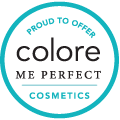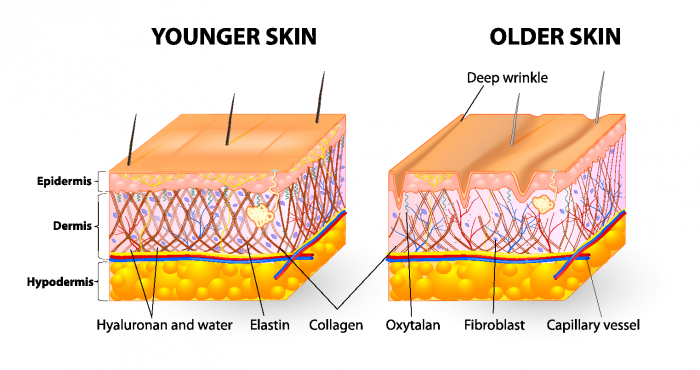What Exactly is Collagen and Elastin?
April 9, 2015
Collagen and elastin are protein-based fibers that are found within the skin. These fibers are primarily responsible for that youthful skin that we all long to have. Collagen is accountable for skin’s firmness and youthful texture; while elastin is responsible for the turgor and elasticity or “snap-back” ability. Skin that has been repeatedly damaged and unprotected, also has damaged collagen and elastin, resulting in the appearance of wrinkles and poor texture.
Collagen makes up a large portion of the skin, so much so that if you were to take out all of the water from your skin, collagen would make up about 70% of what is left. While elastin makes up a smaller portion, it is just as important to take care of and maintain. There are many anti-aging creams and lotions that claim to contain collagen and/or elastin, but a little unknown fact is that those products cannot replace the collagen and elastin that have been damaged in the skin. The protein molecules in those products containing the collagen and elastin are too large to actually penetrate the skin, and therefore only helps to bind water to the skin surface, giving off a temporary anti-aging effect. This will not actually put more collagen/ elastin into the skin, nor will it stimulate the skin to produce more.
So, is there any hope? Of course there is! Your Skin Perfect esthetician will recommend the best treatment for you, as we know that not two clients have the same skin, so there is no “perfect” or universal product or treatment that works on everyone. One option is to introduce your skin to topical retinols, peptides, and/or other active ingredients that will actually stimulate the production of more collagen and elastin. Another option to stimulate more collagen would be microneedling, or collagen-induction therapy. By microneedling, your esthetician creates controlled damage to the skin, and actually produces microscopic punctures in the skin. Your skin, by nature, actually produces more collagen to repair itself, and the collagen will then create a “scaffolding” affect and will fill in the separated area/ puncture. Cell Reactivate is another treatment series that will assist the skin in creating more collagen. While collagen is fairly easy to stimulate (by a professional), elastin is much harder to stimulate and produce. Microcurrent, however, is one of the only treatments that has actually been proven to stimulate to the reproduction of elastin.
Is there anything you can do to protect your collagen and elastin from becoming damaged? As always, sunscreen, sunscreen, sunscreen! Broad spectrum sunscreen is the most effective treatment for protecting collagen and elastin. Antioxidants, in conjunction with sunscreen, will also help to maintain the quality of your collagen and elastin, as it protects the skin from oxidative stress that can be just as damaging as the sun.






